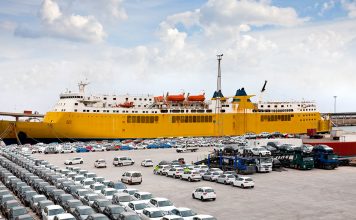• The Traffic Act is silent on cops’ entry to vehicles, towing charges and driving licence confiscation.
When a traffic police officer stopped Samuel Karanja for obstruction outside the City Market, he demanded to get into his vehicle so they could ‘talk’.
“He got me off-guard as I waited for my wife to buy meat at the market,” Karanja said.
At that moment, Karanja, a businessman in the city, had not locked his car. This gave the officer an easy access after Karanja was reluctant to welcome him in. “I think he realised the doors were not locked and he just opened and sat on the front seat,” Karanja said.
Karanja was given options, to give him a Sh1,000 bribe or drive to the Central police station. They both waited for his wife, who had to take the backseat, as they drove off. He would eventually part with Sh500 for the officer to leave his car.
Motorists find themselves in an awkward place after police demand to get in their cars after they are arrested for traffic offences. The Traffic Act is silent on the mode of arrest a police officer should use on traffic offenders. In fact, the word “arrest” does not appear in the Act.
RIGHT TO PRIVACY
Lawyer Juma Olago says this calls for a balance with the constitutional right to privacy, which would involve consent by the owner after arrest to allow the officer get in and the suspect drives the vehicle to the station. If the owner or driver is not agreeable, then he can be arrested and the vehicle towed.
“The law is again silent on who should pay towing charges when a vehicle is towed as a result of the driver being arrested. In practice, police charge the driver in most cases costs that are way more than the market rates,” Olago said.
Olago says he has had a vehicle towed from Narok to Nairobi for Sh19,000, while his friend was asked to pay Sh12,000 for a car that was towed from Sunshine Secondary School on Langata Road to Langata Police Station.
Another thing traffic police are fond of doing is confiscating driving licences. Section 36 of Cap 403 obligates a driver to produce driving licence on demand. The law is, however, silent on when it should be returned or for how long or under what circumstances it is to be retained.
“Police use this vacuum to detain drivers at traffic stops,” Olago said.
SOURCE: the-star.co.ke



![Top 20 Used Cars to Avoid Buying in Kenya – [PHOTOS]](../../../blog/wp-content/uploads/2013/11/top-used-unreliable-cars-to-avoid2-80x60.jpg)



![Top 20 Used Cars to Avoid Buying in Kenya – [PHOTOS]](../../../blog/wp-content/uploads/2013/11/top-used-unreliable-cars-to-avoid2-100x70.jpg)


